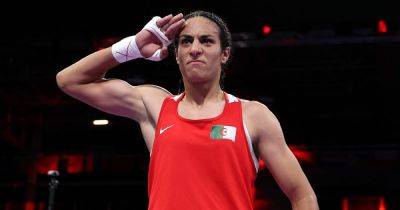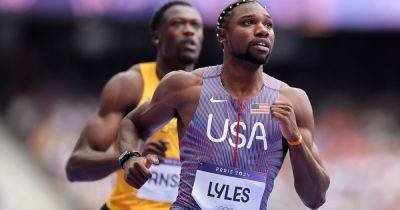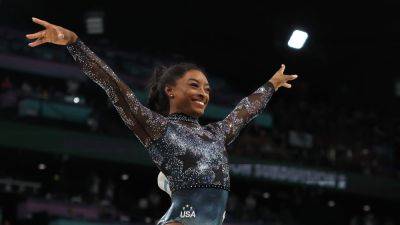Celebs At The Olympics Are Totally 'Wired' Over This Traditional Craze
PARIS (AP) — On the other side of the Atlantic from Wall Street, a market — more wholesome than cutthroat — has sprung up at the Paris Olympics. The commodity at the center of it all? Pins.
The city has seen an influx of collectors from all over the world, each eager to begin or expand their Olympic pin collection and share their stories.
“People are wired to trade. Human beings, we want to trade,” asserts Craig Robbins, a passionate pin collector from Los Angeles. “In life, if you cannot exchange, you die.”
“Do you have any pins?” a Starbucks barista asks every journalist who comes in for coffee at the Palais des Congrès, the Olympics’ main press center.
From bustling coffee shops to quiet streets, the same question has been echoing all over town, as Olympic volunteers, athletes, media workers, waiters, tourists and more all look for the same prized accessories.
“You can really feel the craze this year,” says French pin collector Laurent Facy.
The quest for pins has become an integral part of the Olympics, adding another layer of excitement to the Games. “It’s become a game; we trade a little bit like we used to at the playground,” he says.
Where did the pin craze start?
The tradition can be traced back to the first modern Olympic Games, revived by Pierre de Coubertin in 1896. In Athens, little cardboard badges were sported by athletes, coaches and reporters for identification.
More than a century on, the badges have stretched and evolved into extremely detailed, intricate and, at times, technological pins, customized to participating countries, news organizations, brands and even people.
“They’re like little pieces of art,” passionately declares Nicholas Wolaver, a dedicated American collector and trader.
Los Angeles







